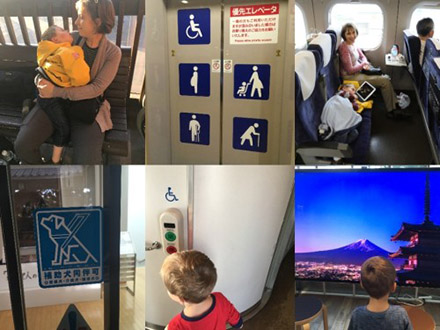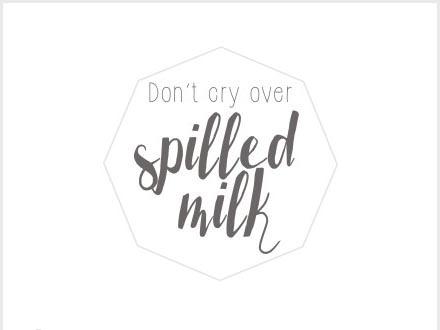About Disability Health Access
Disability Health Access (DHA) develops dynamic solutions to address the challenges of designing a health-care system accessible to individuals with disabilities. DHA can serve as a single source for your organization to meet the needs of consumers with disabilities. It draws on health-care delivery innovations, health and wellness research, and consumers’ expertise. It facilitates collaboration among experts from the health-care system and the disability community.
Areas of Expertise
Assisting with legal compliance
- Advising on regulatory compliance
- Developing and overseeing implementation of internal policies and procedures
- Evaluating federal and state policies, including state Medicaid contracts and state and federal disability legislation.
Community Relations
A wide variety of disability related organizations provide community-based services. Disability Health Access can help you identify and create relationships with disability community- based organizations.
An important part of community relations is planning successful community events. Disability Health Access can help your organization ensure your event is accessible to individuals with disabilities and create targeted events for a variety of disability audiences.
Strategic Communications
Disability Health Access will work with your executive team to create systematic communications plans. These plans will ensure that your organization’s materials are accessible to individuals with disabilities. DHA can also create targeted marketing strategies that resonate with various disability audiences.
Staff Disability Awareness Training
Disability Awareness is training designed to ensure that your staff provides the best service to customers with disabilities.
In addition employees involved in the hiring process should be educated and fully informed of the legal requirements in interviewing and hiring, as well as strategies for workplace accommodations for individuals with disabilities.
Service Delivery Enhancement
Disability Health Access will identify ways in which your health-care organization can enhance service delivery by making your existing services accessible. DHA will help you design means of delivering quality care by:
- Identifying targeted health education curricula for consumers
- Developing systems to evaluate provider networks
- Fashioning tools to deliver targeted care management
- Developing resources to enhance medical equipment fulfillment.
Disability Health Access Clients Include
- Health plans and Health Systems
- Consumer Advocacy Groups
- Public Agencies
- Private Corporations
- Health Care Consulting Firms
- Non Profits
- Government Service Contractors.
Our Mission
Innovations in our health-care system present opportunities to provide better quality of care for people with disabilities. The challenge is to understand the dynamics of providing people-centered services to consumers who are
- Diverse in types of disabilities and ethnocultural backgrounds
- Frequent consumers who may be high utilizers of care
- Knowledgeable health-care consumers
- Aware of their legal right to accommodations in the health-care system.
Diverse Consumers
The experience of disability varies widely according to type of disability and ethnocultural background. How does the health care system provide disability appropriate and culturally competent services to these many kinds of consumers?
Frequent Consumers
As more frequent consumers, many people with disabilities use a greater share of resources. How can the health-care system advance their health, well-being, and longevity, while promoting efficient use of those resources? To those ends, we need to support self-directed health and wellness among people with disabilities. This will not only help prevent additional costly health complications, but also maximize their functioning and productivity in the community.
Legally Aware Consumers
Many consumers with disabilities are increasingly aware of their legal rights to access and accommodations in the health-care system. How can we comply with those requirements equitably and cost effectively? Physical access to health-care facilities and communication access to health-care services are only the starting point. Beyond compliance, we need appropriately accommodating and culturally competent services.
We can accomplish these objectives only by integrating medical services, community resources, and health promotion research. We must translate them into appropriate services that help people with disabilities "Live Healthy with a Disability."
Knowledgeable Consumers
Many people with disabilities are more knowledgeable health-care consumers than their nondisabled counterparts. How can the health-care system use that knowledge on behalf of both the health of individuals with disabilities and efficient health-care delivery?
Meet Anne Cohen

Anne Cohen
Meeting the challenges, offering the services, and accomplishing the objectives require expertise and experience. Leadership in such an effort demands knowledge in a range of areas:
- The workings of the health care delivery system
- The research on health and wellness
- The health and access needs of people with a variety of disabilities from an array of ethnocultural backgrounds
- Connections with the various disability communities.
Anne Cohen, director of Disability Health Access, possesses that sort of necessary expertise and experience. She has served as:
- Program manager for a Medicaid Managed Care Plan
- Advisor on state and national disability health care reform and quality initiatives.
- Research fellow with a disability health and wellness organization
- Legislative affairs director for a not-for-profit entity
- Client advocate within a health and human service agency
- Guest blogger at Disabled Parenting Project
People living in the United States with a Vision Disability
People living in the United States with a Hearing Disability
People living in the United States with an Ambulatory Disability
People living in the United States with a Disability
Source of statistics: 2016 Annual Disability Statistics Compendium. Disability Statistics & Demographics
Recent Publications
Additional Publications
Identifying and Classifying People with Disabilities Using Claims Data: Further Development of the Access Risk Classification System (ARCS) Algorithm.
Disability and Health Journal
The goal was to develop an inexpensive and rapid method for health systems to classify people by their ability to access routine care. We sought to refine and revalidate a software algorithm, the Access Risk Classification System (ARCS), using automated claims data to classify people into one of four categories based on the probable need for care coordination or health system accommodations.
Read moreDesigning a System of Quality Care.
NCPAD (National Center on Physical Activity and Disability)
The "managed care" system was originally developed in the late 1920’s to provide comprehensive health care to families in the lumber, mining, and railroad industries at a set cost. Enrollees paid a fee to physicians, who then provided care based on an agreement.
Read moreGet Rolling: Tips on Paying For the Mobility Equipment You Need, Navigating Medicare
Independent Living Resources San Francisco
Read moreGet Rolling: Tips on Paying For the Mobility Equipment You Need, Navigating Medi-Cal
Jul 2016Independent Living Resources San Francisco, (ILRSF)
Read moreGet Rolling: Tips on Paying For the Mobility Equipment You Need, Navigating Employer and Private Insurance
Jun 2016Independent Living Resources San Francisco, (ILRSF)
Read moreGet Rolling: Tips on Exploring the Bay area and Beyond, Accessible Sports, Recreation and Travel
Jul 2016Independent Living Resources San Francisco, (ILRSF)
Read moreGet Rolling: Tips on Finding the Mobility Equipment You Need, Purchasing: Tips for Becoming a Smart Consumer
Jul 2016Independent Living Resources San Francisco, (ILRSF)
Read moreGet Rolling: Travel Tips, Planes, Trains and Automobiles
Jul 2016Independent Living Resources San Francisco
Read more






